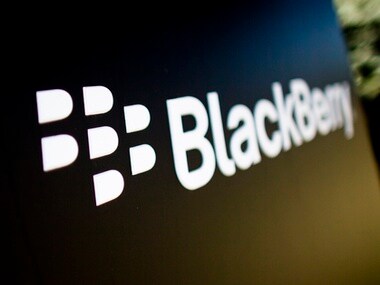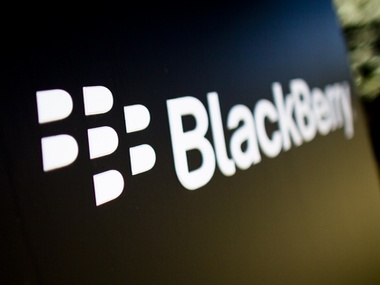Blackberry 10 did not exactly set the sales register ringing. But in the history of the mobile operating systems, I believe it has been a real game changer. I say so because Blackberry 10 is based on the real-time QNX OS, a versatile system that is embedded in rockets to critical nuclear power stations. And over the past year, BlackBerry has put in much effort to come up with three major updates, further polishing and refining the user interface growing its app ecosystem.
But financial troubles due to lower than expected sales saw John Chen, who famously brought Sybase back from the brink to profitability, being brought in to head BlackBerry. Chen started with organising and restructuring BlackBerry with a clear focus on the enterprise-an area he knows best–and outsourcing manufacturing of devices to Foxconn to lessen inventory risks for BlackBerry. The upcoming Z3 is a result of this collaboration and is specifically made for emerging markets like Indonesia and India.
[caption id=“attachment_77558” align=“alignleft” width=“380”]
 Image: Reuters[/caption]
Chen realises that the consumer segment is shrinking because of dominant players like Apple and Samsung who are difficult to overthrow. Even mighty Microsoft has barely scratched the surface against the entrenched giants with Windows Phone. But his strategy seems to be to play to BlackBerry’s strengths, get enterprise booming again and use that to get the consumer back.
While Blackberry 10 was designed from ground up, the gesture-based interface takes some time to get used to, and it also got a cold shoulder from a majority of the American carriers. Negative press coverage had a domino effect on the markets where the devices were not launched. This was coupled with the BYOD movement; I personally believe it is unwise on the part of a technology leader to allow Android in an environment where security is paramount.
However, despite all this, Blackberry is still a strong player in the enterprise market and is a market leader in some emerging economies and niche domains like the G7 governments which rarely allow anything else than BlackBerry.
Blackberry’s new Enterprise Server offerings are also being deployed more and more and tested in different environments across the world. Blackberry alone conforms to and exceeds the US Department of Defence FIPS certification with the authority to operate on their highly secure networks. If the encryption is good for one of the most paranoid nations on the earth, it should be good enough for any enterprise segment and the consumer market. Leaders like President Barack Obama to German Chancellor Angela Merkel use highly secure and encrypted BlackBerry smartphones.
The fact is that compared to other OSes, very, very few BlackBerry devices have been jailbroken or compromised-and BlackBerry 10 has never been compromised. The Blackberry Enterprise Server can remotely manage other operating systems in secure containers but Blackberry Balance alone represents the ability to manage your work and personal spaces in a seamless manner. None of BlackBerry’s competitors have the kind of strong installed user base as Blackberry Enterprise Server. And while competitors like Samsung have made attempts at security, like Samsung’s Knox, it hasn’t seen widespread acceptance.
Also, I believe that market share numbers put out don’t reveal the entire picture. Market share is estimated based on shipments; unfortunately, any movement of devices in a warehouse is often counted as a shipment. Therefore, the number of Android devices (and the huge fragmentation of its ecosystem) is overestimated, in my opinion. The familiar strategy of Samsung is to flood the market with differing hardware profiles at different price points. It becomes truly overwhelming to track down accurate sales numbers. These companies also don’t provide real data on the number of devices returned or deactivated. Similarly, many corporate networks disable Internet access through browsers. Hence it’s not easy to measure user agent sniffing through pinged servers. Hence, data provided by the various analyst firms with regards to the actual market share perhaps needs to be taken with a pinch of salt.
And although BlackBerry’s most recent results have shown a precipitous drop in the sales of devices, the company still has over $3.2 billion in cash and aided by John Chen’s focus on the enterprise may be enough to see it through. The focus on the enterprise is clear from Chen’s recent announcements on focusing on keyboard devices as BlackBerry flagships-the Q20 has just been announced and is eagerly awaited by BlackBerry fans.
The famous app conundrum has been taken care of by the latest OS update which allows conversion of Android apk files on the fly and there are now apps like Snap which directly allow access to Google Play on BlackBerry 10. However, I still believe that BlackBerry’s native Cascades offers a more fluid and better dynamic control over device applications and would prefer it over Android.
With its position in enterprise markets, an unparalleled security ecosystem, a new management that has its priorities right-through the enterprise focus, and growing developer confidence, I believe that BlackBerry may now have all the ingredients to even succeed in the consumer space.
Dr Abhishek Puri is a cancer specialist based in Singapore who keenly follows technology. All opinions are strictly that of the author.


)
)
)
)
)
)
)
)
)



